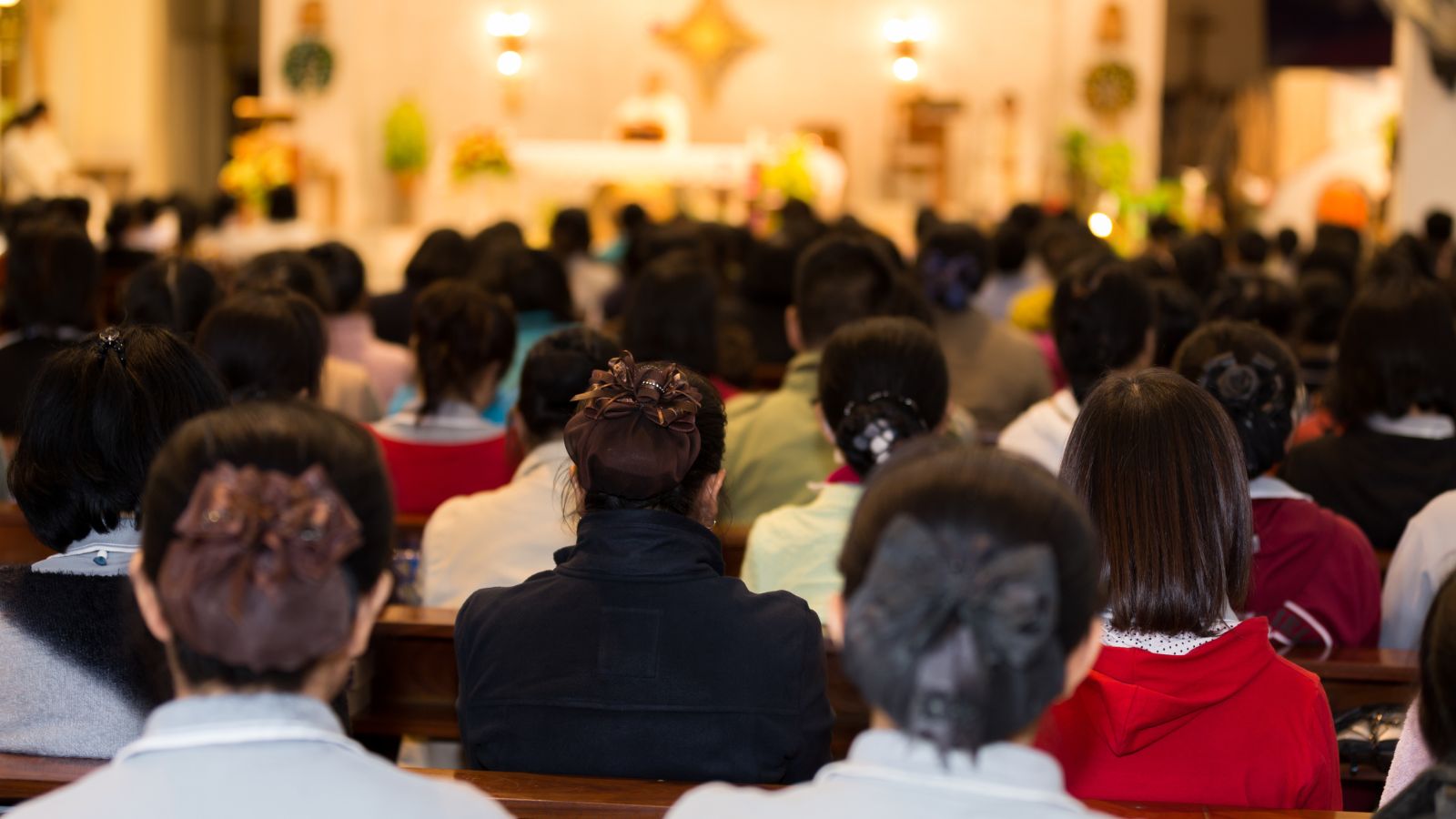Atheism is on the rise in America. The historical dominance of religion is slowly shifting to more scientific thinking and self-regulated codes of morality. While atheism is a personal choice, here are the 19 factors contributing most to its increasing popularity.
Education

Religion historically ‘filled in the gaps’ that humans couldn’t, particularly regarding things like the purpose of life, what happens when we die, and the mysteries of physics. Psychology Today reports that intelligent, educated people are more likely to question religious doctrine and long-held beliefs that lack rationality or proof. As education improves, atheism increases.
Rise of Religious Fundamentalism

In some cases, the extreme, barbaric, or severely strict rules for some religious sub-sects can make individuals raised in those environments miserable and hostile to religion of any kind. Taking religion too seriously, following outdated practices, or expelling certain individuals can make religion seem unappealing and even repulsive, prompting more atheist views.
Globalization

As successful cults show, unquestionable faith in someone or something is only possible when communities are small, isolated, and unexposed to influences that question the validity of their tenets. As international travel and the internet have opened the world up, exposure to different cultures and religions makes many people question other ‘absolute truths.’
Greater Acceptance

The NIH reports that religious beliefs are a strong indicator of social intolerance. As our society modernizes and becomes more tolerant and progressive, many people are questioning religious teachings that deny LGBTQ+ rights, gender equality, and other human rights. The youth, in particular, may feel religion is discriminatory and outdated.
Autonomy

In contrast to more strict, traditional human societies, modern societies emphasize individual freedom and choice. This has helped create an atmosphere of safety and autonomy in which individuals can think for themselves, question religious teachings, and adopt their own code of morality without specific instruction or restrictive rules.
Skepticism

With scientific research now offering repeatable, provable evidence to explain many of the world’s greatest mysteries, educated individuals often suffer skepticism when asked to adopt ‘blind faith’ in religion. Many atheists appreciate logical thinking, rational discussion, and questioning ancient texts as reliable sources of fact.
Rise of the “Nones”

A growing segment of the population does not subscribe to any religion and identifies as “nones,” effectively atheists. This group has gained popularity, particularly amongst young people raised in oppressively strict, restrictive religious families who have disconnected from their faith-based upbringings and chosen to live a more modern existence.
Irrelevance

According to National Geographic, many modern-day atheists find religious teachings or practices irrelevant to their daily lives or lacking in personal meaning. In a world where science and technology offer consistent answers to questions and reliable solutions to problems, many people simply see religion as pointless and old-fashioned.
The Amount of Suffering

Many skeptics ask the following question: if God is all-powerful and all-seeing, then why doesn’t He fix the world’s injustices and sources of suffering? In a world plagued by war, disease, famine, and other atrocities, many atheists simply don’t trust in the idea of a benevolent overseer who sees all this widespread horror and does nothing.
Reduced Institutional Influence

Traditional religious institutions have recently faced criticism for their involvement in political and social issues, as well as for covering up abuse and corruption within their ranks. Ministry Brands claims this loss of trust and legitimacy is a significant cause for a declining membership in the Catholic Church and a rising number of atheists.
Critical Thinking

The atheist Tim Minchin once said, “Science adjusts its views based on what’s observed. Faith is the denial of observation so that belief can be preserved.” Many modern educational systems encourage children to think for themselves, question long-held beliefs, and come to their own conclusions about what is realistic and socially acceptable.
Consumerism

Our increasingly materialistic and capitalist culture often places more emphasis on possessions like houses, cars, and smartphones than it does on spiritual awareness or religious fulfillment. The Article asserts that the immediate gratification of material purchases often eclipses personal spirituality, morality, and growth.
Bad Press

Media portrayals of religion, particularly those depicting conflict or extremism, frequently portray religious teachings, practices, and professionals (like priests, rabbis, and imams) in a negative light. While not focused on all religious groups, such news articles help generate distrust and negative perceptions of faith in general.
Personal Experiences

Those individuals who were part of religious communities but experienced personal hypocrisies, lies, or betrayals can have significant distrust in religion as a whole. Seeing deceitful church leaders, dishonest actions, or discrimination firsthand can cause individuals to turn away from their religion, choosing atheism over ‘choking on the lies’ they were taught.
Secular Humanism

This movement offers an alternative to blind faith, providing people who require an ethical framework with a philosophy based on reason, logic, and human compassion (rather than supernatural deities or outdated practices). The fact that religion is by no means a requirement for moral decency, kindness, and charity makes atheism more appealing.
Increasing Multiculturalism

As people travel more and immigrate to new places, the religious landscape becomes increasingly diverse, with many religions existing harmoniously side-by-side. While this tolerance is commendable and enriching, it can also lead smart individuals to question the absolute truth of any one religion and embrace a more open-minded approach.
Online Communities

The advent of the internet has opened our lives up to connections far beyond our immediate families and local communities. Many traditional religions offer a strong sense of belonging and support but can be exclusive and intolerant. Young people are increasingly finding a sense of community and comradeship online, making localized religion less relevant.
Absurdity

Although not ubiquitous for religious teachings, many religious texts offer bizarre explanations for scientific phenomena, change historical facts, or make outlandish claims that have since been disproved. Many atheists find this absurdity off-putting and childish, preferring to trust in scientific discovery and archeology over wacky Bible stories.
Focus on Personal Growth

New-age spiritual practices, like meditation, mindfulness, and inner peace, do not require belief in one religious text, set of rules, or gods. Individuals may be drawn away from traditional religions by alternative spiritual practices or philosophies that focus on personal growth and self-discovery and are more flexible in being personalized.
Read More: 18 Everyday Items That Have Now Become Too Expensive For the Average American

There are some items that we have to pay for every single day. But for the average American, these mundane things are becoming too expensive. In this article, we will show you 18 of these pricey day-to-day items.
18 Everyday Items That Have Now Become Too Expensive For the Average American
18 Misunderstood Acts The Bible Says Aren’t Actually Sins

People tend to assume that the Bible condemns a wide array of behaviors, but the reality might surprise you. Here, we zoom in on 18 so-called “sins” that may not be as bad as we thought.
18 Misunderstood Acts The Bible Says Aren’t Actually Sins
18 Things You’re Far Too Old To Be Doing Anymore

As we grow older, it’s a great time to reevaluate our choices and habits. In this article, we’ll explore 18 things you may still be doing even though you may be too old.
18 Things You’re Far Too Old To Be Doing Anymore
18 Things That Become Intolerable as You Get Older

As people age, they sometimes don’t find as much joy in things as they used to. An internet survey recently asked, “What are you starting to dislike more as you get older?” Here are the top 19 responses.
18 Things That Become Intolerable as You Get Older
17 American Attractions That Not Even Americans Want to Visit

The United States of America—land of the free, home of the brave, and the location of some of the most ‘unique’ tourist attractions you’ll ever lay eyes on.
Get ready to chuckle, scratch your head, and maybe even facepalm as we look at 17 American attractions that not even Americans think are worth visiting.
17 American Attractions That Not Even Americans Want to Visit

